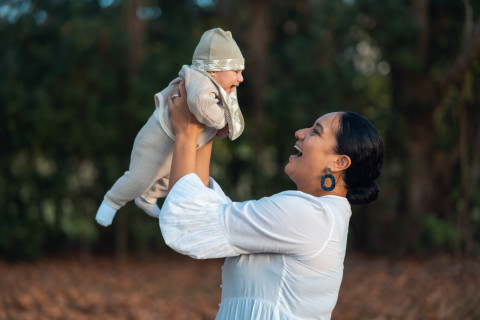Full genome sequencing is currently the most comprehensive method of arriving at a genetic diagnosis, but the full capability and infrastructure need to instigate this practice in Aotearoa has yet to be realised.
Capability needs to grow amongst laboratory scientists and clinicians using whole genome datasets using software embedded within their own IT systems. The clinical benefit of whole genome diagnostics needs to be experienced by a broad array of clinicians, patients and their whānau.
In this project, whānau whose members have an undiagnosed potentially genetic condition will have their genomes sequenced and the data analysed by specialist teams within New Zealand hospitals.

This work builds on the Genomics Aotearoa Clinical Genomics project, which established links to build capability between research and clinical realms across Aotearoa. The analysis in this project will extend to detect a broader range of potential genetic mutation types than done previously and will develop methods to analyse datasets from whānau where key family members might not be available to participate.
The results will be much-needed exposure to NGS diagnostics using whole genome datasets across the three main New Zealand centres offering molecular genetic diagnosis, alongside experience for clinicians in collaborative variant curation and the delivery of diagnosis genome sequencing.
The team will also develop and run Genomics Wānanga – using a Te Ao Māori lens to teach genomics analysis to Māori medical students.
Outcomes
- Analysis of 80 genomes from individuals with undiagnosed, potentially genetic clinical disorders to demonstrate in all thee of New Zealand’s diagnostic centres improvements in speed, diagnostic rates and breadth of practice.
- Development of skills, capability and familiarity with genomics for Māori medical students.
- Consensus across the participating laboratories and clinical units for approaches and practices which deliver optimal diagnostic rates and speeds. This will include the acceptability and utility of offering to participants links to Rare Disorders NZ and also an appreciation of the value of the wānanga model to students taking part.
Team
- Professor Stephen Robertson (University of Otago) – lead researcher
- Associate Professor Louise Bicknell (University of Otago) – lead researcher
Molecular pathologists/laboratory scientists:
- Dr Cheng Yee Chan & Dr Richard King (Canterbury Health Labs, Canterbury District Health Board)
- Jo Martindale (Wellington Regional Genetics Laboratory, Capital Coast District Health Board)
- Mark Greenslade (LabPlus, Auckland District Health Board)
- Dr Joep de Ligt, Dr Leah Kemp (ESR)
Clinical Geneticists:
- Dr Kate Neas (Clinical Director, Genetic Health Services NZ)
- Dr Kate Gibson (Clinical Leader, Genetics, CDHB)
- Dr Ian Hayes (Clinical Leader, Genetics, Auckland District Health Board)